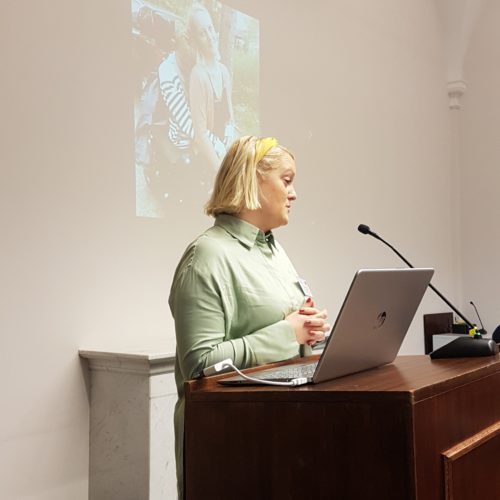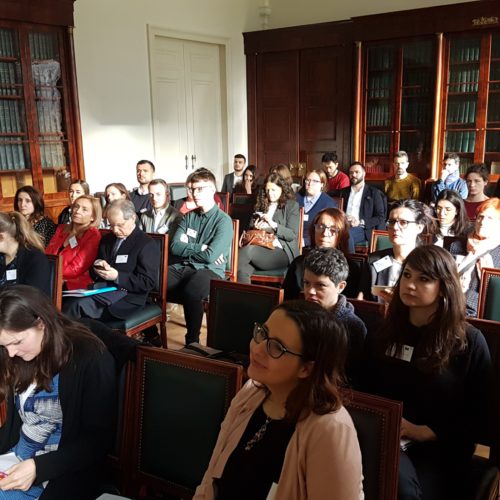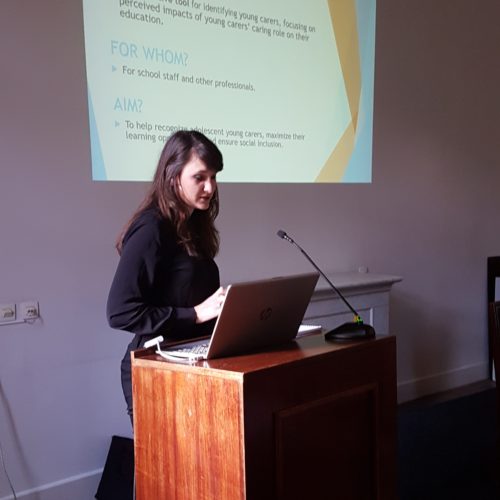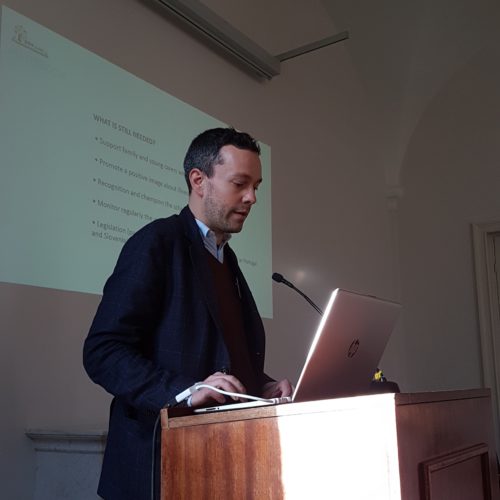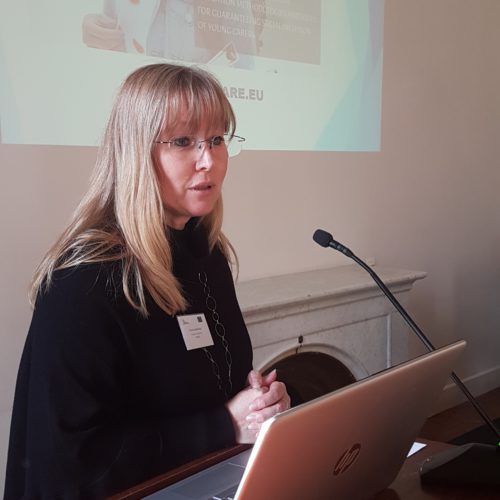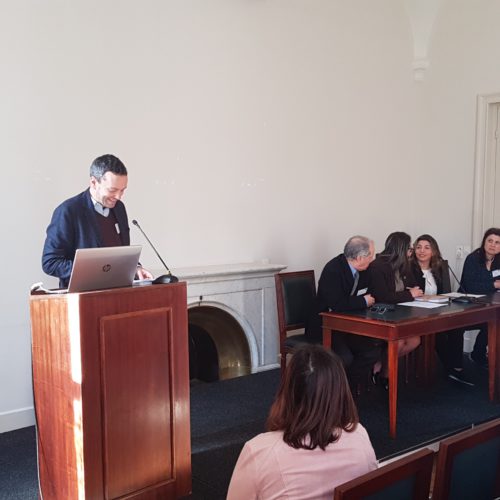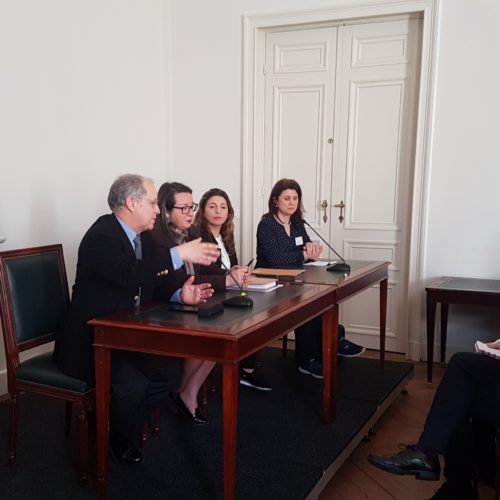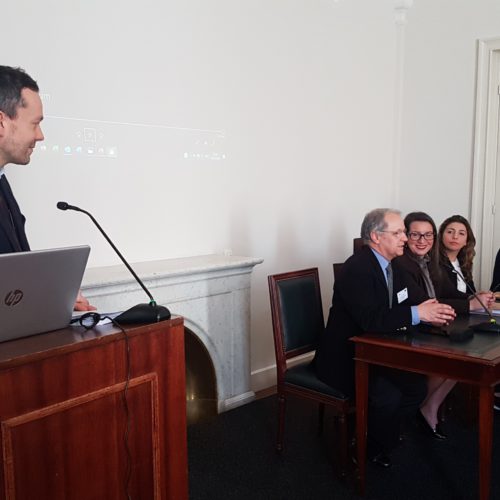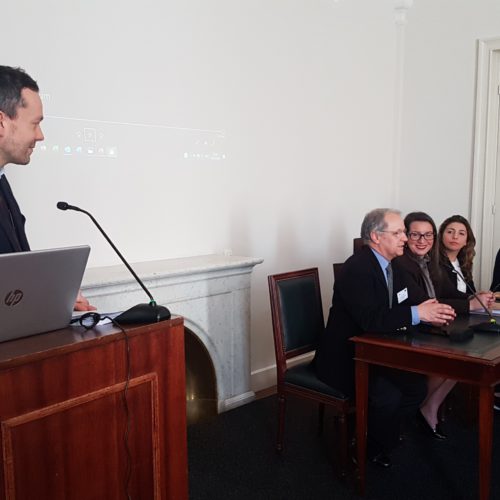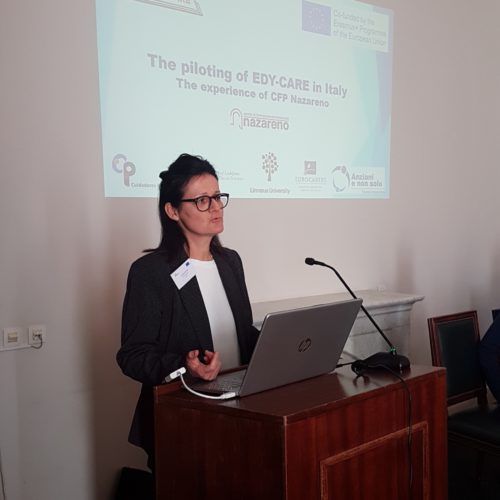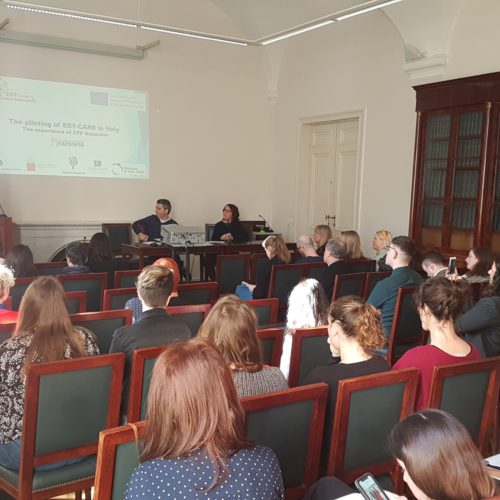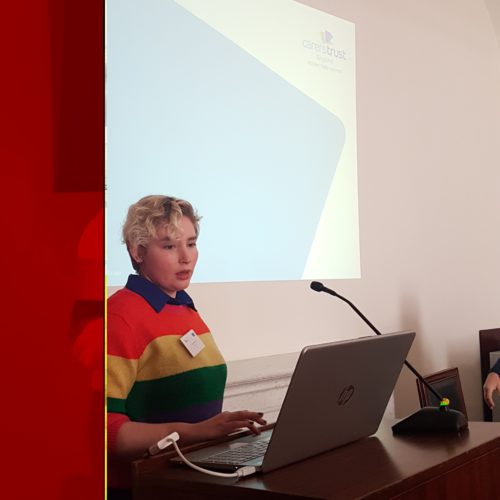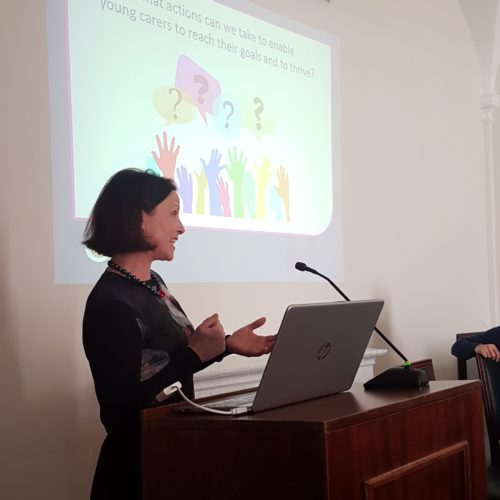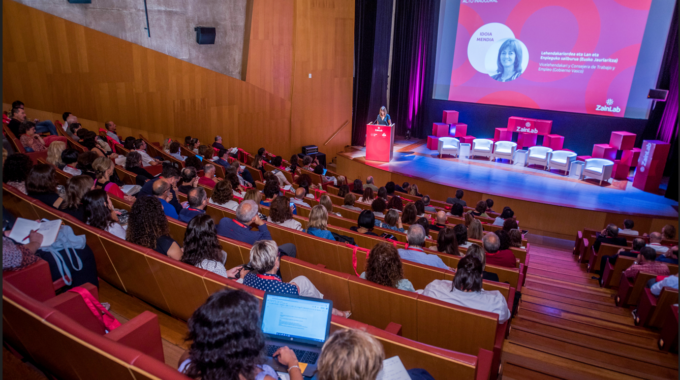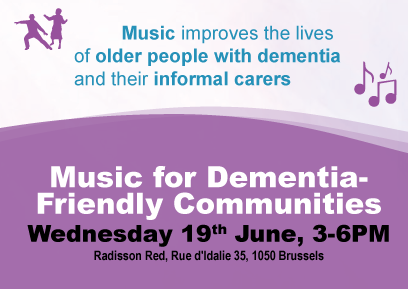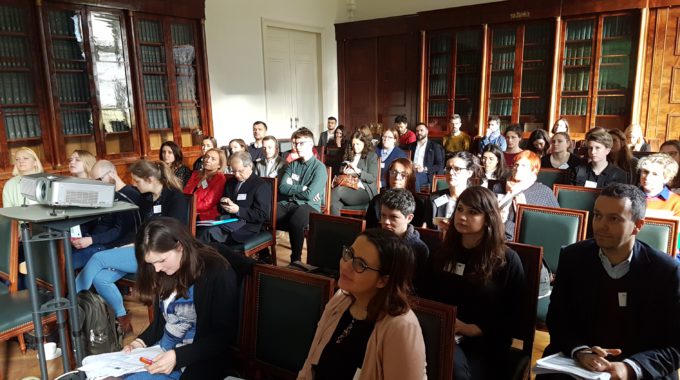
Edy-Care Final Conference
I’ve such a bad conscience when I feel that now I leave my mother when I know she’s drunk, and then you should sit there in the school, listen to the teacher and try to do your best
(David, 17 years old, Sweden).
Young carers who provide care to another family member often experience high levels of worry, depression, anxiety, stress and other mental ill-health problems. They may also feel a sense of guilt when leaving the person for whom they are caring while they attend school, and even fear losing their relative or of inheriting the same illness together with a sense of helplessness or having little control over their situation. They can also be distracted in school due to worrying about the person they care for.
In spite of this, young carers are often reluctant to inform teachers and other staff (nurses, director, guidance counsellors) about their caring responsibilities. To bridge this gap, Eurocarers participated in an EU-funded project, EdyCare, which sought to empower teachers and other school staff to identify and support adolescent young carers (16-19 years old) to maximize their learning opportunities and remain socially included.
On Wednesday 19th February, Eurocarers co-hosted the final conference of the Edy-Care Project. The final conference, which took place in Brussels, brought together a wide range of stakeholders in the education and caring sectors interested in better understanding the challenges faced by young carers in balancing their educational needs with their caring responsibilities and to learn about practical ways to support young carers in schools.
Project partners presented the main tools developed within the Project – an assessment tool to identify young carers and the impact of caring on their educational attainment, a toolkit of strategies and a handbook for school professionals to support young carers, as well as a MOOC (Massive Open Online Course) which was developed and tested with teachers and other school staff aiming to share the project outcomes internationally.
School professionals then presented some of the innovative activities developed to support young carers in schools, including workshops in classes to raise awareness among students about the specific needs of young carers and to support self-recognition; the piloting of an individual education plan offering flexible arrangements for students with special needs; and strategic partnerships with relevant service providers. Simply showing a video of young carers’ experiences can help teachers understand the need for flexibility around homework and dates for exams.
Prof Alvaro Santos, Director of a Secondary School in Portugal argued that “the lack of awareness of teachers is a major challenge for young carers, but that, as young carers exist, there is a need to continue the work developed through the Edy-Care Project”.
Dr Karen McAuley, Head of Policy in the Ombudsman for Children’s Office in Ireland informed conference delegates that “all states have a duty to respect, protect and fulfil the rights of all children. At policy level, this can include legislating for children with special needs or caring responsibilities, and also highlighted the need to take the views of children into account in developing and implementation relevant policies”.

